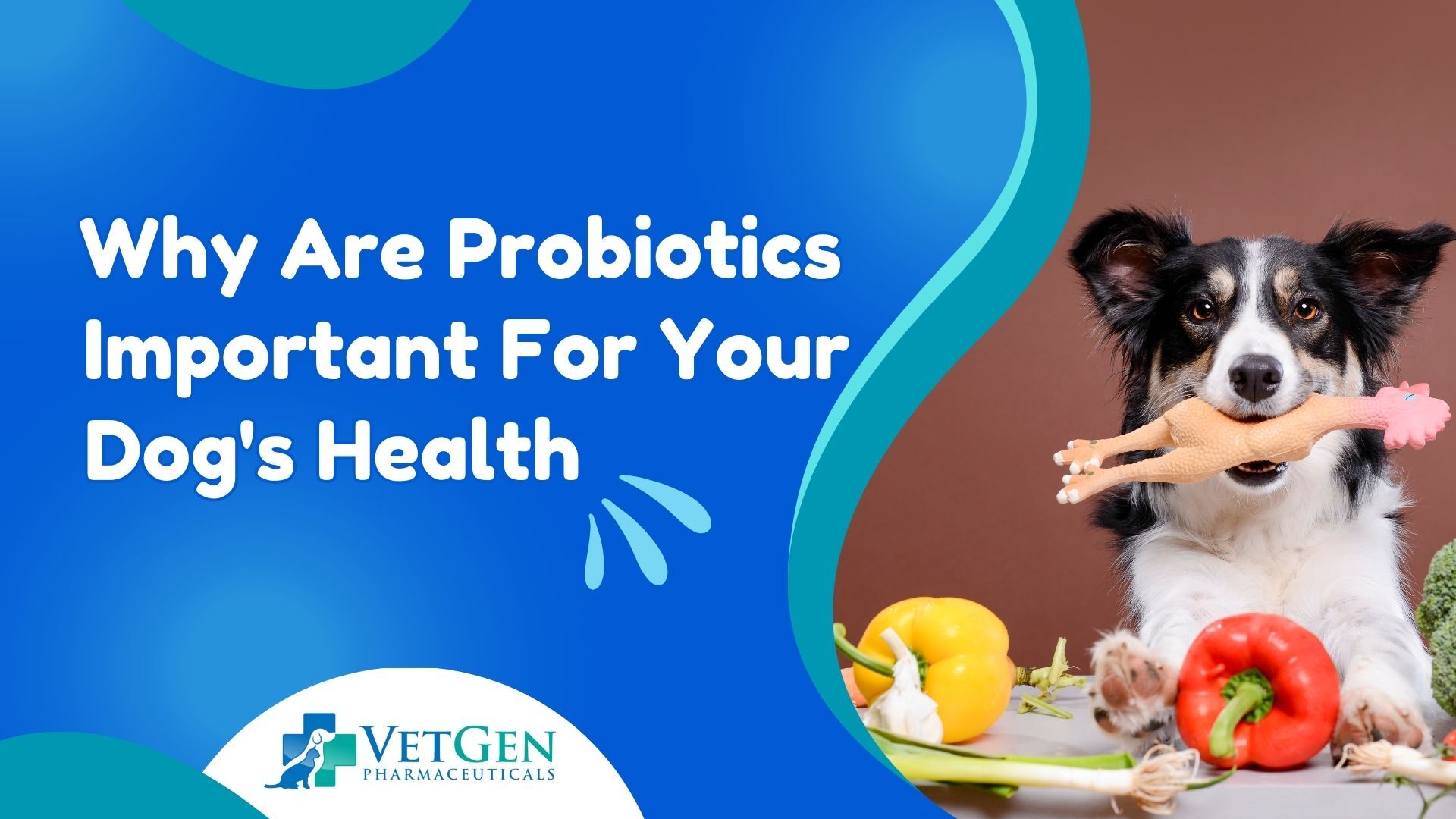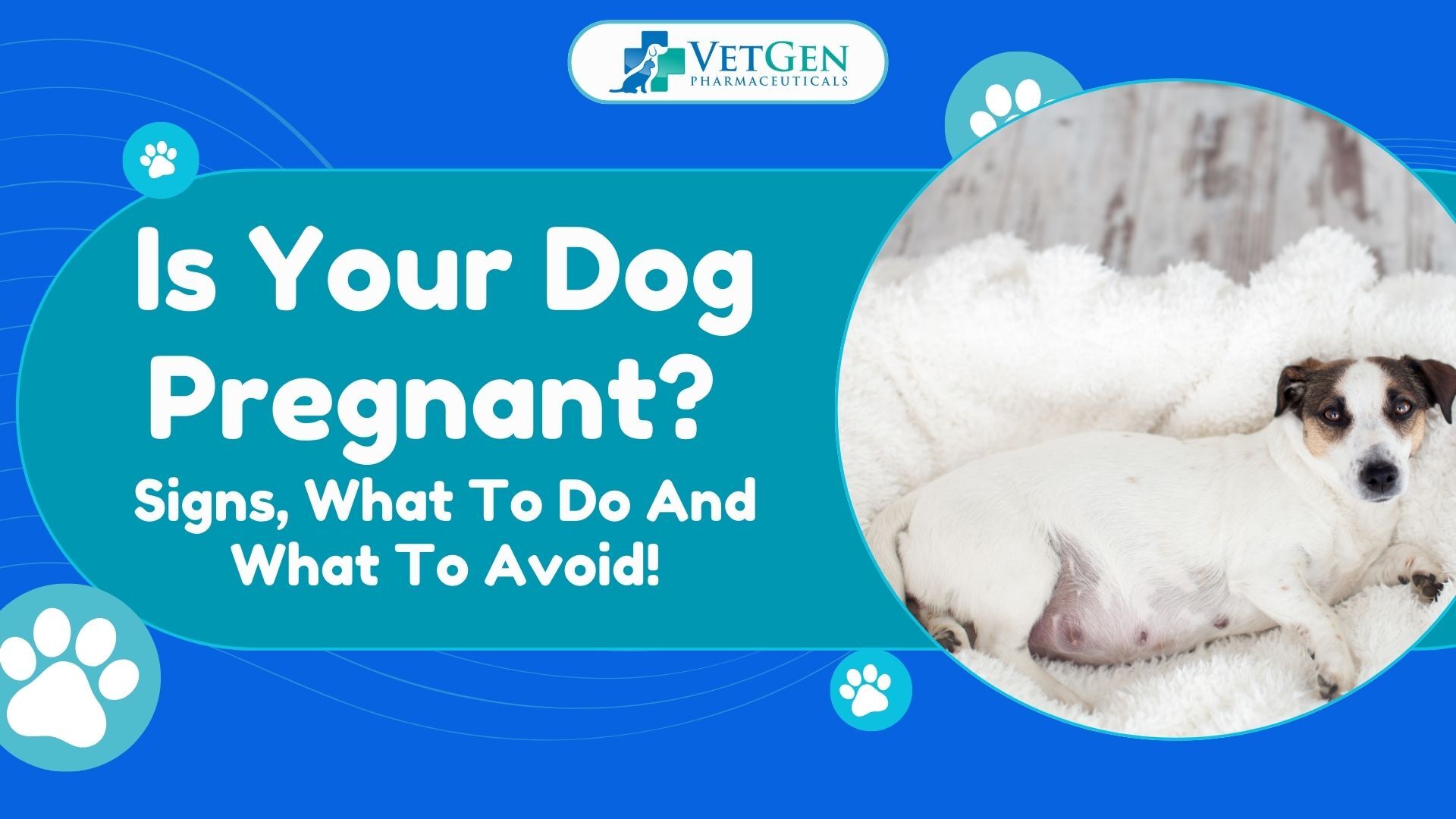Table of Contents
Probiotics are living bacteria that resemble the naturally occurring microbes in the intestines of dogs. Dog probiotics can support the preservation of intestinal balance. Probiotics can help them stay healthy in the long run.
From separation anxiety to digestive distress, there are a few reasons why dog owners give probiotics to their pets. Continue reading to find out more about the functions, advantages, and other details about probiotics for dogs.
What Benefits Do Dog Probiotics Offer?
The microbiome, which is made up of billions of microorganisms, is found in the dog’s intestines. Unbalanced microbiomes can cause symptoms like loose stool and excessive flatulence. Live, good bacteria called probiotics help to maintain the equilibrium of the gut.
According to AKC, probiotics lower the pH in the stomach, which promotes the growth of the dog’s own good gut bacteria. Additionally, probiotic bacteria can help in the health of a dog’s digestive system by sticking to intestinal cells and secreting compounds that encourage the development of good bacteria.
Do Dogs Need Probiotics?
Your veterinarian should decide whether probiotics are necessary for your dog depending on your dog digestive health. The vet will take a look at your pet’s symptoms and any other medications they are taking to understand whether your dog needs probiotics.
Your pet probably doesn’t require them if they’re in good health. However, even healthy dogs can go through periods of stress and worry, which can lead to gastrointestinal problems. In that case, vet-approved probiotics can be helpful.
When Do Dogs Require Probiotics?
- Dog diarrhea: An imbalance of intestinal bacteria brought on by stress or medical conditions can result in cramps, gas, and diarrhea. Studies have demonstrated that taking probiotics can reduce the duration of diarrhea from seven to four days. One of the main indicators that your dog needs probiotics is this.
- Irregular bowel movements: While giving your pet more fiber in their diet may help temporarily, symptoms such as diarrhea and irregular stools may indicate an unbalanced gut microbiome. Probiotics support regular bowel motions by balancing the gut microbiomes.
- Losing Weight: If your veterinarian has checked out any underlying medical issues, a dog who is losing weight quickly isn’t receiving enough nutrients from their food. Once more, this is consistent with unbalanced microbes. Probiotics help increase digestive enzymes to better digest food.
- Allergies: The most common allergy in dogs is food. Although there isn’t a treatment for this illness, probiotics can greatly improve a dog’s immune system and reduce allergy-related symptoms.
- Yeast Infection: An overabundance of yeast might result in various gastrointestinal issues for your pet. Dogs frequently have yeast infections in their ears, but these infections originate in the stomach and spread throughout the body. Because of this, it’s critical to overpopulate their stomach with beneficial bacteria to help with the microbiome rebalance.
Considerations for Probiotics for Dogs
Here are some things to consider before giving your dog a probiotic.
Health of Your Dog
Your dog might not require a probiotic if they are in good health. If your dog has digestive or intestinal issues from stress or illness, the vet will likely recommend a probiotic.
Diet
Studies reveal that dogs with diets high in carbs might not have microbiomes that are in good condition. Adding more protein and altering your dog’s diet may be helpful. To help you choose the best dog food, consult your veterinarian.
Different Probiotic Strains
The types and quantities of bacterial strains that probiotics contain can be different. Among the bacteria that are frequently discovered in the gut and probiotics are lactobacillus acidophilus, lactobacillus casei, bifidobacterium breve, bifidobacterium lactis, and enterococcus faecium.
Certain probiotics lack the strains your dog might require, and not all probiotics are created equal. It’s important to see your veterinarian and carefully study product labels to ensure your dog is receiving the proper bacteria.
Temperature
Probiotics are affected by moisture, air quality, and temperature. Probiotics are living organisms that have evolved to survive in the GI tract. Extended exposure to extremes in temperature, moisture, or air can destroy the bacteria within and make the product unusable. Probiotics might have to be refrigerated.
Expiration Date
Verify the probiotic’s use-by date before purchasing. This will help you understand how long the bacteria stay alive and useful. Probiotics that are used after their expiration date won’t likely function as well.
Food-based Probiotics
Natural probiotics like kefir and yogurt are frequently given to dogs. Make sure to thoroughly read the labels if you choose to feed your dog kefir or yogurt that contains live cultures. They might include artificial preservatives or sweeteners that are harmful to dogs. Additionally, your dog may be lactose intolerant or allergic to dairy, which can result in upset stomach and diarrhea.
Conclusion
Probiotics are a good way of maintaining good bacteria in your dog’s gut. If your dog doesn’t need supplements due to medical conditions, it is best to give high-fiber foods to healthy dogs. It’s not difficult to find a probiotic for your dog. Ask your veterinarian about supplements made particularly for dogs that contain probiotics.
Frequently Asked Questions
1. Are there any side effects of probiotics for dogs?
When given suddenly or in large quantities, probiotics for dogs can have mild and temporary side effects. This can result in diarrhea, constipation, or increased gas production. Probiotics can also cause allergies in dogs because of the supplement’s inactive components.
2. How long is a dog supposed to take probiotics?
Probiotics should be given to dogs for a few weeks. Probiotics take a few days to begin its effect. If your dog has a health condition, you should give it probiotics for at least eight weeks. Consult a vet to find out how long a dog needs probiotics.
3. What time is best to give probiotics to dogs?
Probiotic supplements are best taken in the morning, right before breakfast. Since the dog’s stomach has the least amount of gastric acid before breakfast, probiotics can be given to it. Make sure that you talk to your vet before making any probiotic medication schedules for your dog.








